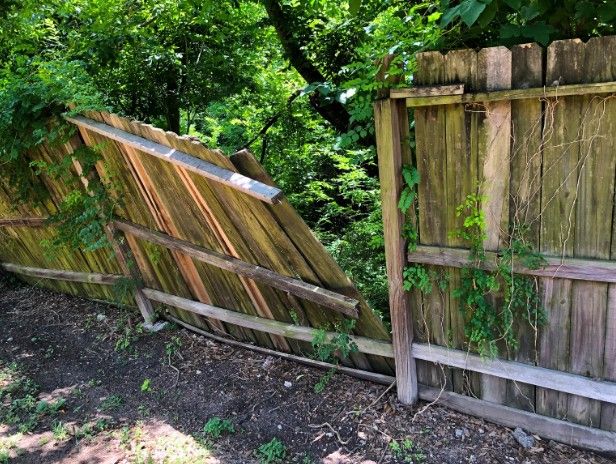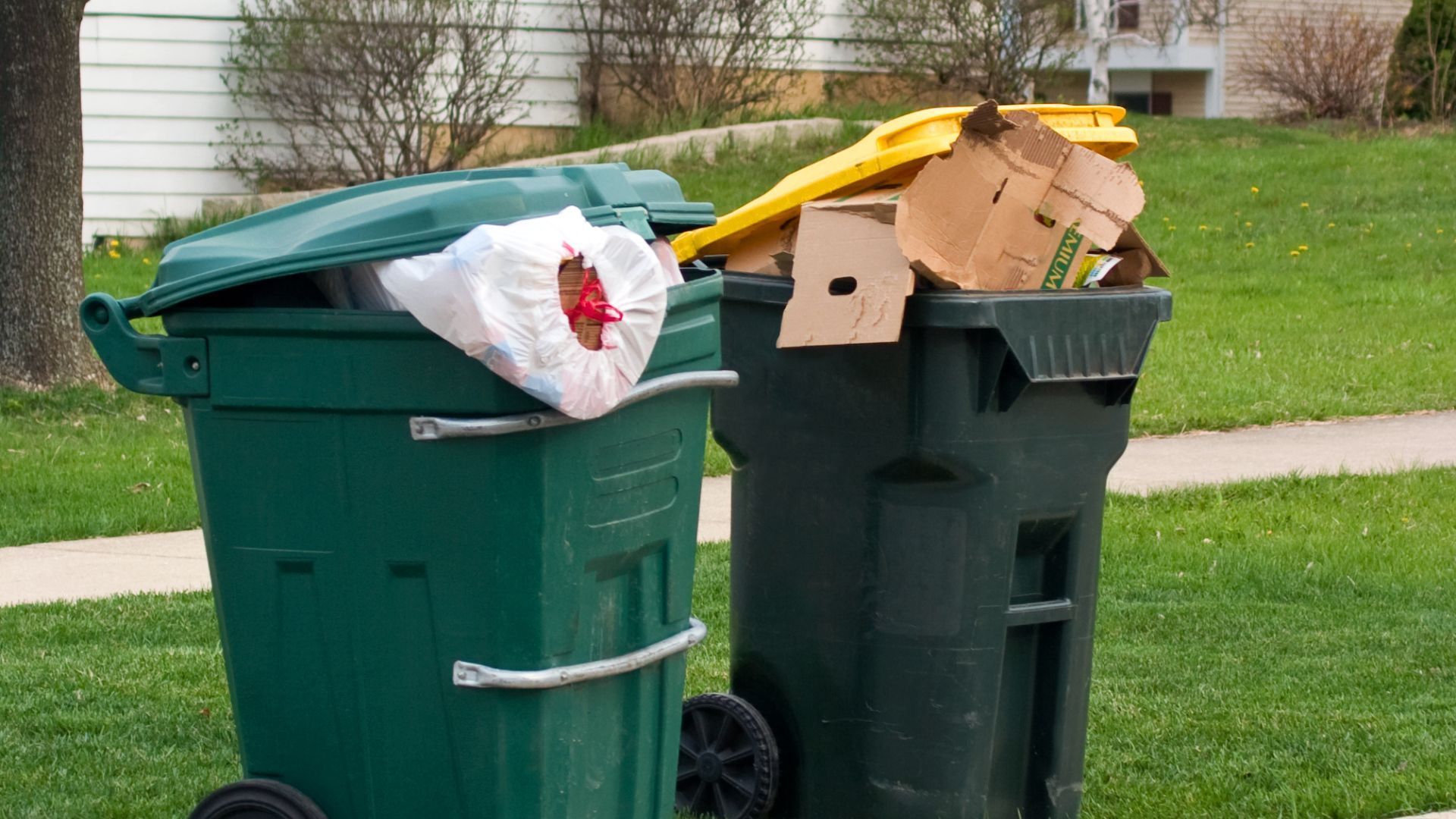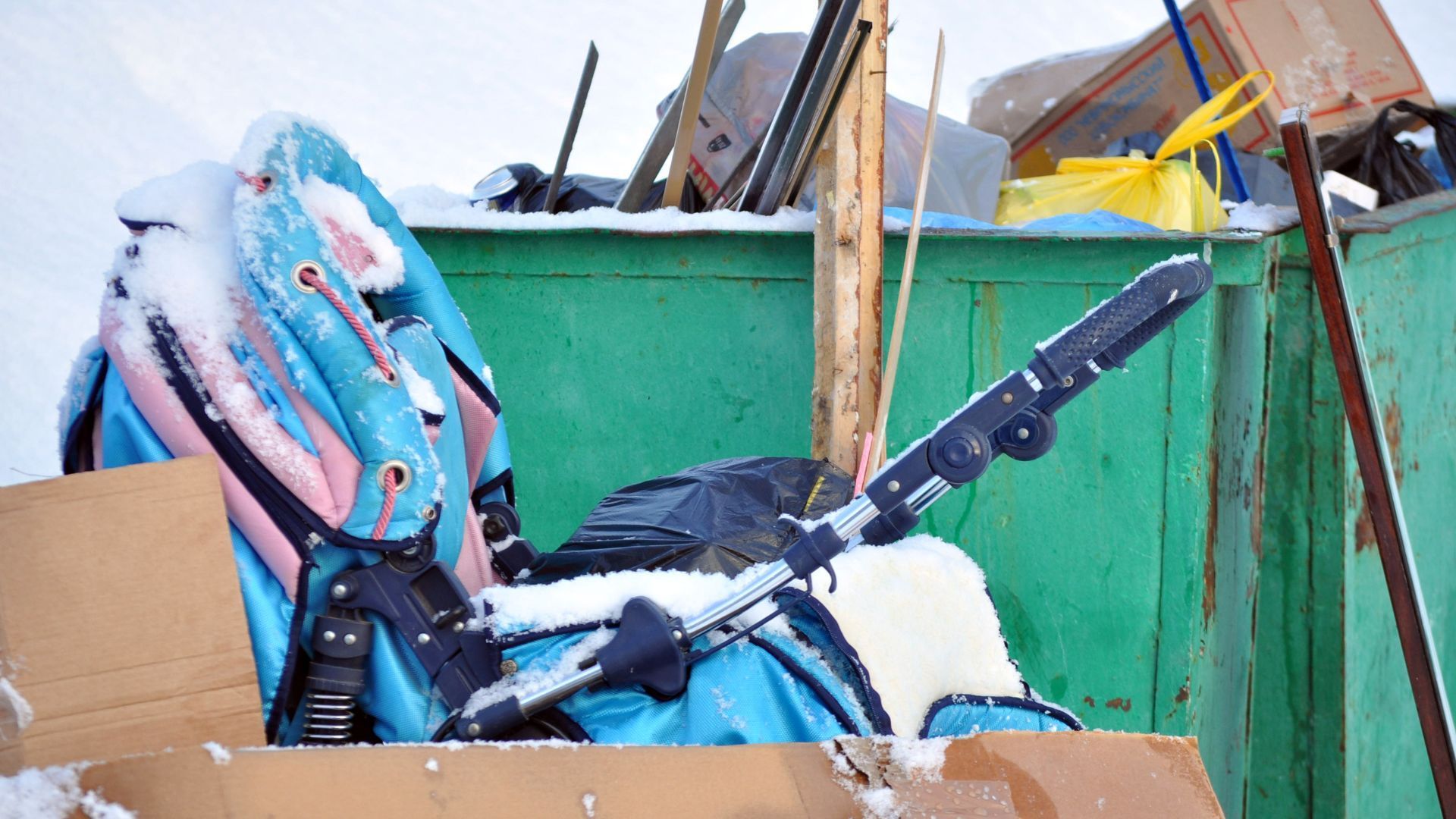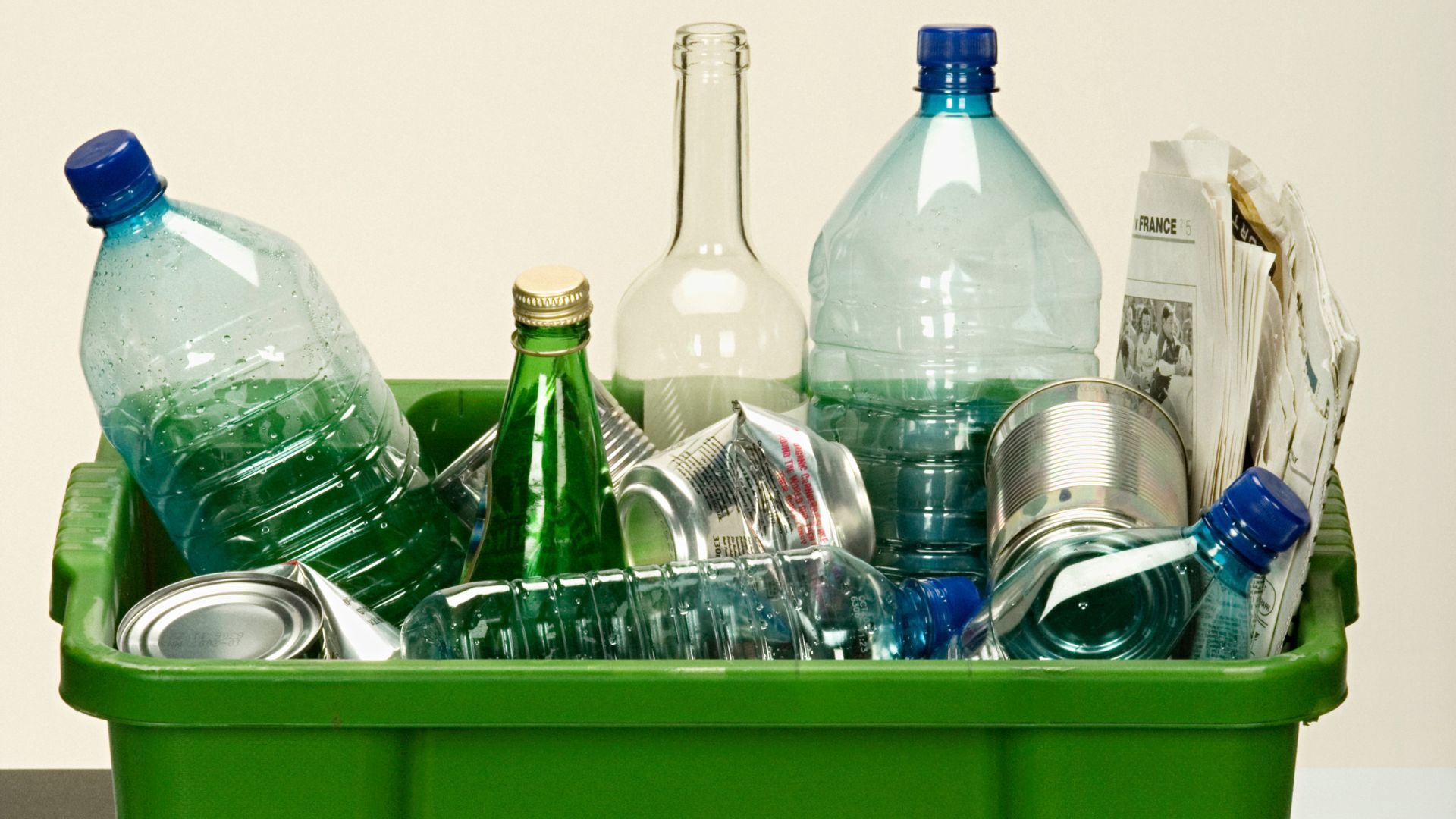How to Safely Remove Augusta and Dispose of Old Fencing
Junk removal Augusta is often the first step in transforming a property cluttered with broken materials, and one of the most common eyesores is a deteriorating fence. Whether it's splintered wood or rusted chain link, knowing how to dispose of old fencing correctly is essential—not only for curb appeal but also for safety, legality, and environmental responsibility.
Fencing removal might sound simple, but the process demands careful planning, tools, and an understanding of disposal protocols in Augusta. Improper handling can lead to injuries or penalties, so staying informed helps keep your project compliant and cost-efficient. This blog explores every layer of the process, from pulling out posts to where the remnants go. If you're looking for a creative yet clear approach to the topic, with insider tips and expert insights, you’ve come to the right post. Let's dig deep into how to safely and legally dispose of old fencing.
Assessing the Condition of Your Fence
The journey to dispose of old fencing starts with understanding its current state. Is the fence merely discolored, or has it suffered structural collapse? These nuances dictate whether parts can be salvaged or if a full teardown is required. A rotting wooden fence is a different beast than a corroded metal one. Inspection involves checking for stability, embedded concrete in posts, and any attached wiring or nails. Identifying hazardous components such as splinters, sharp rusted edges, or broken fasteners helps prevent injuries during removal.
In Augusta’s humid climate, mold or mildew may have infiltrated the fencing—another factor demanding cautious disposal. Take notes. Photograph trouble spots. Use this assessment to plan your tools, protection gear, and removal timeline. This proactive step saves time later and ensures the junk removal Augusta crew or service you hire knows exactly what they’re dealing with. Evaluating the fence is not glamorous, but it’s where the smart work begins.
Gathering the Right Tools for Safe Removal
To properly dispose of old fencing, arm yourself with the appropriate tools—each tailored to disassemble, lift, cut, and clean. For wood, you’ll need a crowbar, handsaw, power drill, and gloves thick enough to fend off splinters. Metal fences demand bolt cutters, angle grinders, and eye protection. Concrete footings complicate matters, requiring a sledgehammer, shovel, or in some cases, a jackhammer.
Not all tools will be used by everyone, but lacking even one critical piece can stall progress. Augusta’s soil conditions may also impact how hard it is to pull posts out, especially if they’ve been buried deep for decades. Having a wheelbarrow nearby to cart away materials speeds up cleanup. Don’t underestimate the power of zip ties, tarps, and buckets—they help organize and contain small sharp components that can become dangerous if scattered. Think like a demolition artist and plan like an engineer. The right tools lead to safer, smoother junk removal Augusta experiences.
Safety First: Protecting Yourself During Demolition
Before swinging that hammer, think of protection. Fence removal may appear straightforward, but it’s loaded with risks—from hidden nails to collapsing sections. Gloves aren’t optional; they’re essential. Use work gloves that can resist punctures and splinters. Steel-toe boots protect your feet from falling boards and metal chunks. Safety goggles shield your eyes from flying dust or debris, especially when cutting through metal. Don’t forget ear protection if you're using power tools.
Clothing should be rugged—no shorts or open-toe shoes. Take extra precautions if you're near electrical lines or dealing with fencing that’s grounded with wires. If you're working during Augusta’s hot summer months, heat exhaustion is also a threat. Stay hydrated. Schedule work during the cooler parts of the day. Safety isn’t a formality—it’s what separates a successful job from a hospital trip. Remember, to dispose of old fencing without harm, personal protection must be as prioritized as removal techniques.
Removing Fence Panels and Posts Efficiently

The heart of the removal process lies in detaching panels and yanking out posts. Begin by unscrewing or prying off panels, moving from top to bottom. Do not randomly rip—this causes chaos and waste. Mark each panel if you plan to recycle or repurpose some sections. Removing posts is where things get grittier. If your fence has concrete footings, dig around the post until you expose enough of the concrete.
Then use a lever system or post puller to hoist it out. Alternatively, break the concrete and cut the post off at ground level, though this isn’t ideal for full disposal. Junk removal Augusta companies often bring equipment to simplify this part, but for solo efforts, patience and elbow grease are your allies. Create a disposal pile separate from reusable materials. Clear as you go to avoid tripping hazards and streamline your path toward a clean, post-free yard.
Sorting Materials for Responsible Disposal
Once everything’s down, the sorting phase begins. This is where you determine what’s garbage, what’s salvageable, and what needs special handling. Wooden panels that aren’t pressure-treated can often be repurposed or mulched. However, treated wood may contain chemicals unsafe for burning or composting. Metal fencing can typically be recycled, including posts, wiring, and brackets. Nails, screws, and hardware should be collected and stored safely in buckets or containers.
Junk removal Augusta services typically assist with this stage to prevent mixing landfill waste with recyclable goods. Augusta’s environmental regulations are becoming stricter, so separating out reusable or hazardous elements isn't just noble—it’s required. If you find barbed wire or electrical fencing, these require extra care and may need to be dropped at a designated facility. When you dispose of old fencing correctly, it reduces landfill use and maximizes community resources. Think of it not just as junk but as raw material waiting for new life.
Disposing of Wood: Local Ordinances and Eco-Options
Wood is tricky when it comes time to dispose of old fencing. Augusta, like many cities, has guidelines based on wood treatment and volume. Pressure-treated lumber contains chemical preservatives that can’t just be tossed into a bonfire or composted. You must bring such wood to approved facilities or work with a junk removal Augusta service that understands local compliance.
Natural wood may be recycled or reused for garden beds, crafts, or fuel (if untreated). Plywood panels and painted surfaces also need special consideration. Never dump wood at random—illegal dumping in Augusta comes with steep penalties. Some wood types can be shredded into mulch, but only after testing for toxins or coatings. Consider calling local waste management for a materials report. Better yet, consult a professional service to handle the legwork. Disposing wood responsibly isn’t just environmentally smart—it keeps you on the right side of Augusta’s evolving waste codes.
Metal Fence Disposal: Recycle, Don’t Trash
Disposing of metal fences is often simpler than wood—thanks to the recyclability of steel and aluminum. Yet, to dispose of old fencing effectively, you must remove non-metal attachments first. That includes rubber caps, plastic coatings, and embedded wood. Cut metal panels into manageable sections using grinders or heavy-duty shears. Bundle wiring separately to prevent tangling during transport. Augusta’s recycling centers may offer cash for scrap, giving you an added incentive.
However, drop-off rules can be strict, requiring materials to be clean and sorted. Junk removal Augusta professionals often transport these materials in bulk, saving you the headache of logistics. Avoid tossing metal in curbside bins—it’s too large and won’t be collected. Plus, you lose the opportunity to earn back part of your investment. Recycling metal keeps it out of landfills and feeds local manufacturing loops. When you think of it not as trash but as valuable scrap, disposal becomes an act of smart stewardship.
Handling Hazardous Materials from Old Fencing
Some fences hide more than old paint—they harbor lead, asbestos, or chemical coatings. Especially true in older Augusta properties, these substances demand caution. Never saw through painted fencing without first testing for lead, especially if the structure predates 1978. Asbestos-laced panels or anchors should be handled only by certified removal services. To dispose of old fencing with hazardous elements, label and isolate them from general debris.
Inform junk removal Augusta teams in advance so they arrive prepared. Augusta has specific drop-off locations for toxic materials, but these often operate on strict schedules and quantity limits. Use sealed, clearly marked containers. Do not mix these with household trash or let them sit in open-air bins. It’s not just dangerous—it’s illegal. Treat every old fence like a historical mystery until proven safe. The precautions may take time, but they protect both your health and Augusta’s ecosystem. Be vigilant. Be legal. Be responsible.
Transporting Debris to Approved Disposal Sites
With your fence down and sorted, it’s time to move the debris. Don’t just throw everything in the back of a pickup and hit the road. Augusta’s waste transport regulations call for covered loads and proof of disposal destination. You must bundle materials securely, ensuring nothing flies off during transit.
Junk removal Augusta providers come with trucks tailored for this purpose, but if you’re going DIY, invest in tarps, ratchet straps, and loading ramps. Organize loads by material type to speed up the drop-off process. Know the hours and rules of the disposal center in advance—some don’t accept treated wood, while others charge by weight or material class. Take documentation seriously. A receipt or drop-off ticket serves as your legal proof should neighbors or authorities ask questions.
Conclusion
From the first crowbar swing to the final trip to the recycling center, disposing of old fencing in Augusta demands care, knowledge, and intention. It’s more than physical labor—it’s a process of responsibility. Whether you're tearing down wood or metal, dealing with hazards, or sorting for the environment, each step matters.
If you're looking for a trusted partner in that journey, turn to Hinkins Disposal LLC. Located at 246 Robert C Daniel Jr Pkwy #1441, Augusta, GA 30909, United States, they offer expert service tailored to every fence type and disposal challenge. Call them today at +1 706-885-4032 or send an email to Hinkinsdisposal@gmail.com to get started. Your yard—and Augusta—deserves nothing less than thoughtful, thorough cleanup backed by local expertise.




